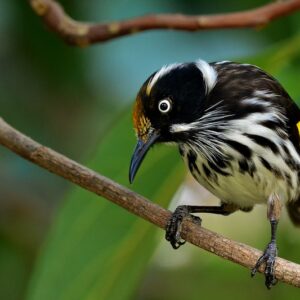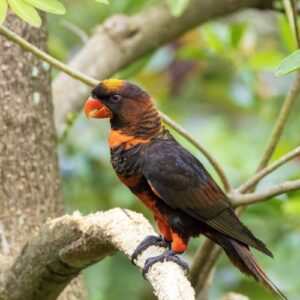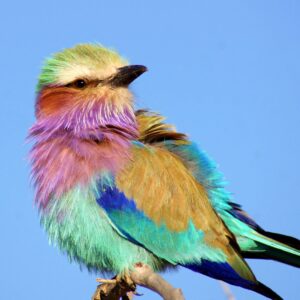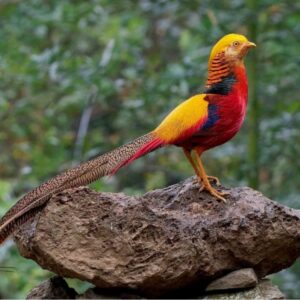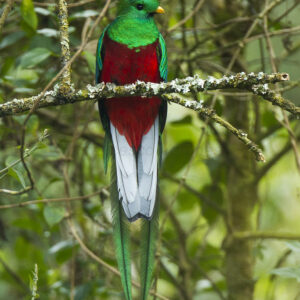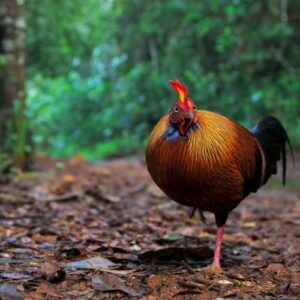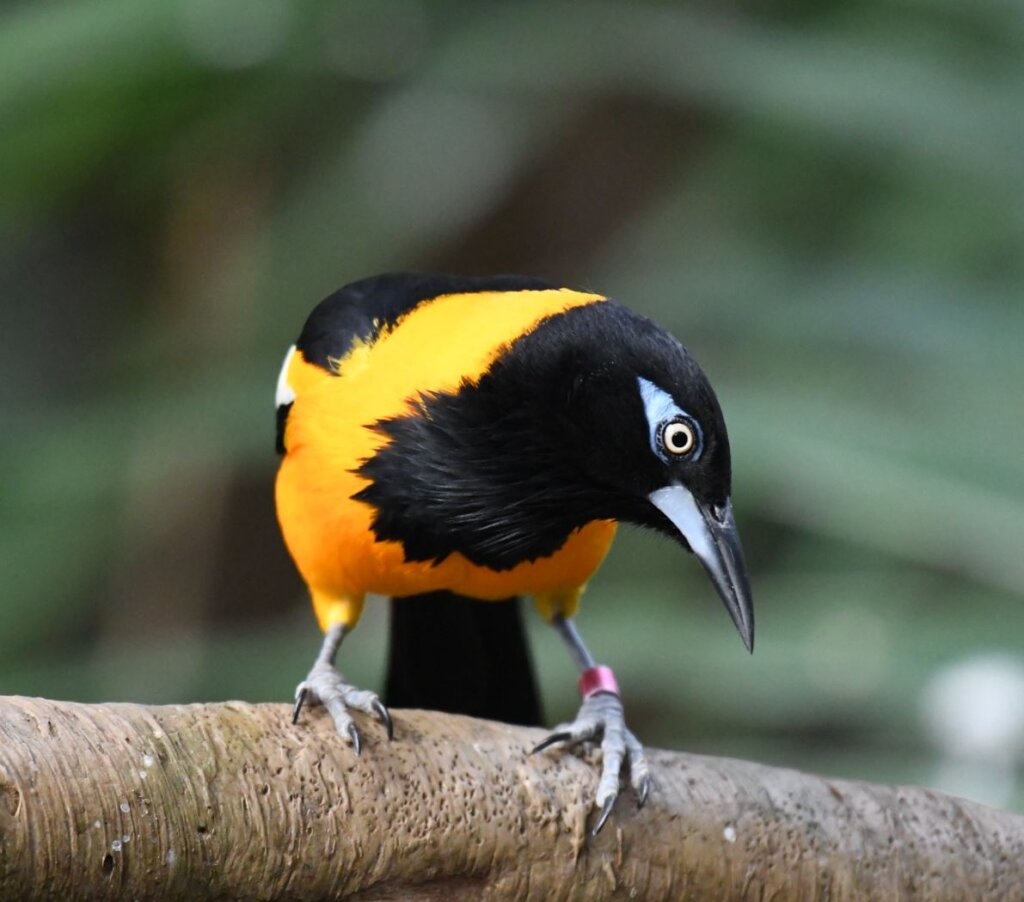
Enraptured by the radiant hues of the Venezuelan Troupial as it gracefully traverses the skies
Introducing the Venezuelan Troupial, adorned with fiery orange and red tones that contrast vividly against its black, white, and blue plumage.
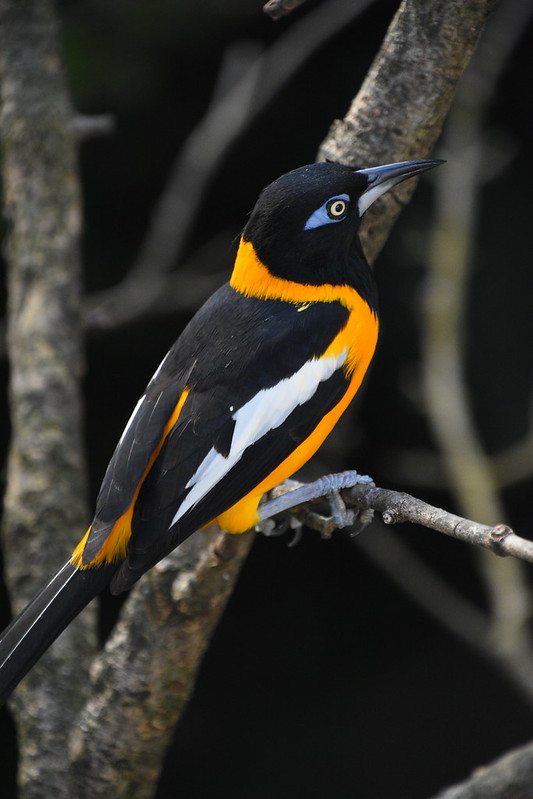
The Venezuelan troupial (Icterus icterus) stands as a relatively large bird with a striking appearance, boasting a long tail and a robust bill. Its upper breast and head are cloaked in black, with feathers on the upper breast protruding to mark an uneven line between the black and orange of its lower breast and belly. Orange hues also adorn the upper and lower back, juxtaposed by black shoulders. The wings, too, bear a black hue with a distinctive white streak running the length when closed, while its yellow eyes are encased in bright blue bare skin.
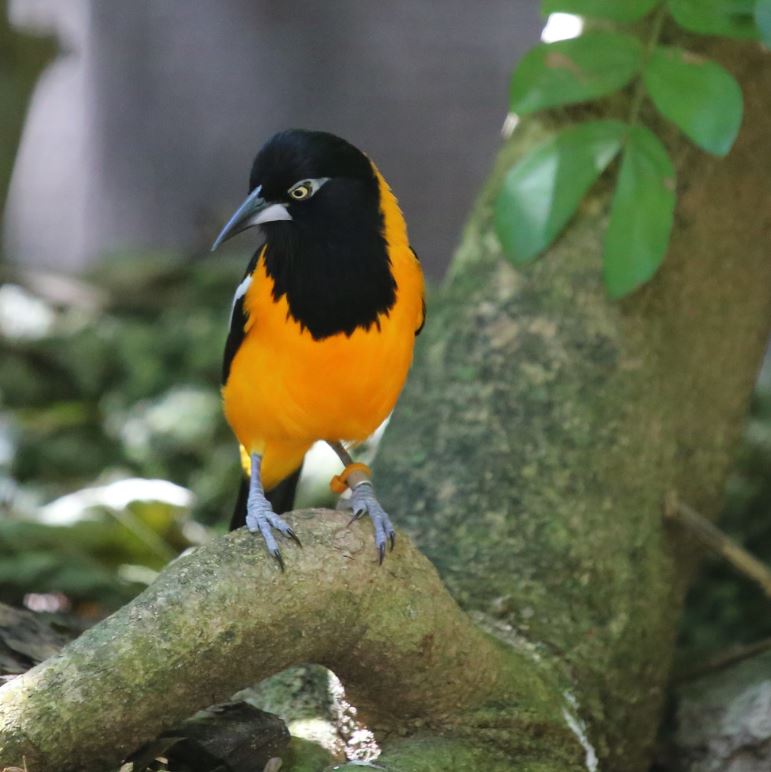
Juvenile troupials mirror the appearance of adult birds, albeit with a paler complexion and a brown wash over their black plumage.
Named the international bird of Venezuela, the Venezuelan Troupial is also found in Colombia and various Caribbean islands, including Aruba, Curaçao, Bonaire, Trinidad, and Puerto Rico.
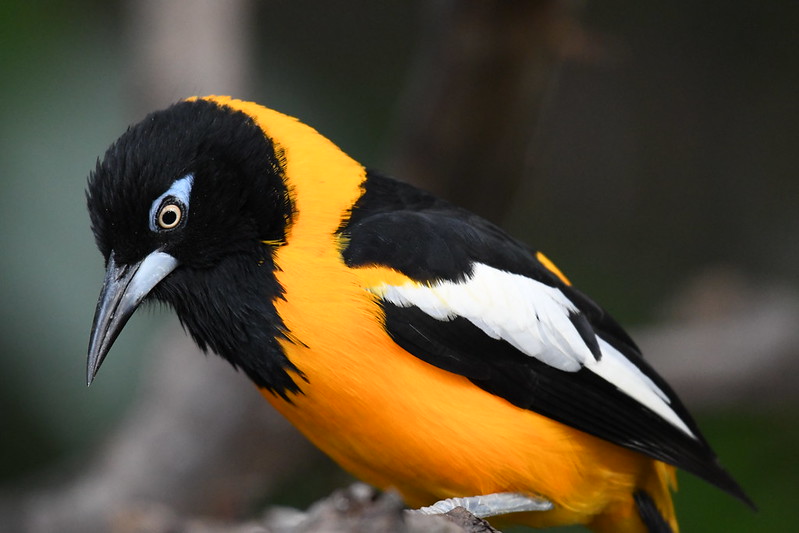
These birds thrive in woodland habitats adorned with lush, dense vegetation, including scrub areas, overgrown grasslands, and orchards. They display remarkable adaptability to fragmented habitats and forest edges.
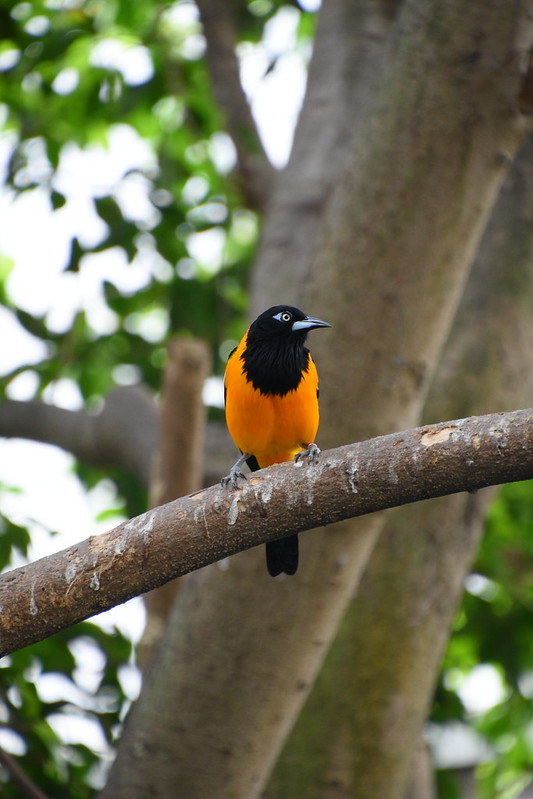
As omnivorous creatures, Venezuelan troupials relish in the abundance of food provided by the tropical climate, indulging in insects, fruit, nectar, berries, and seeds. They may also consume eggs and young nestlings, and, if the opportunity arises, partake in sipping nectar from feeders.
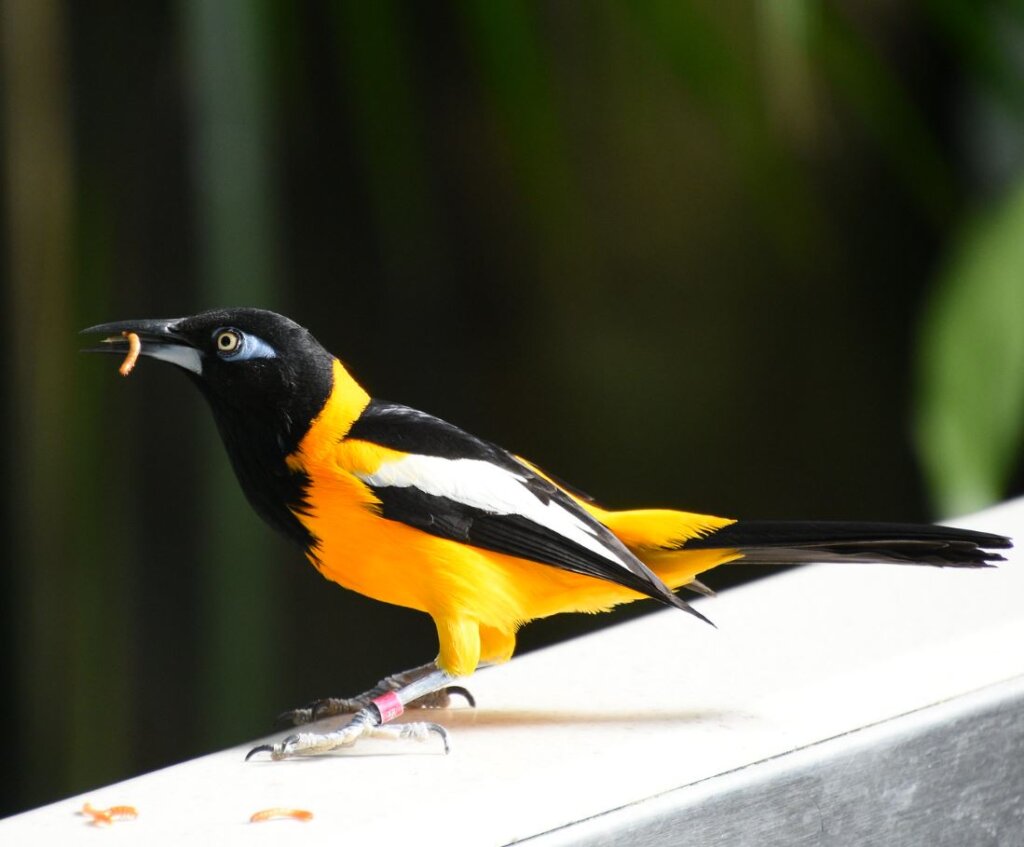
Breeding from March to September, Venezuelan troupials employ a unique nesting strategy—they are nest pirates. This entails either seizing a vacant nest or driving away adults from an active nest. Fiercely territorial, they fiercely defend their claimed territory against potential intruders.
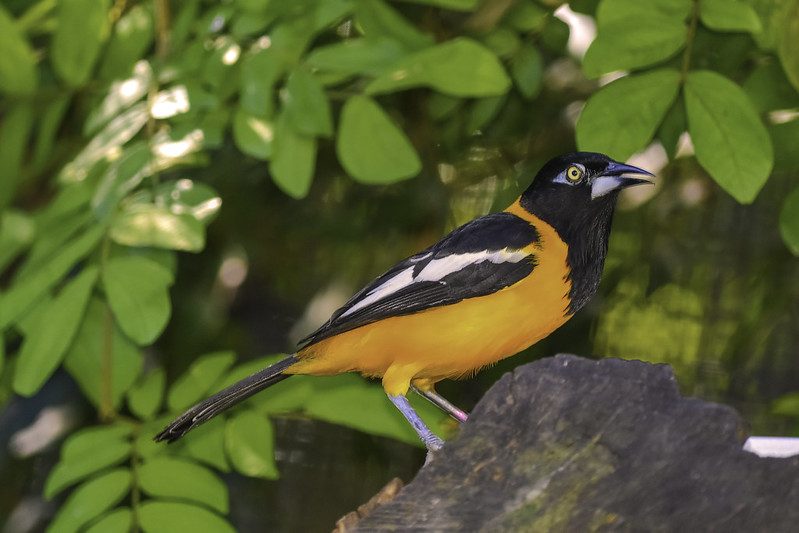
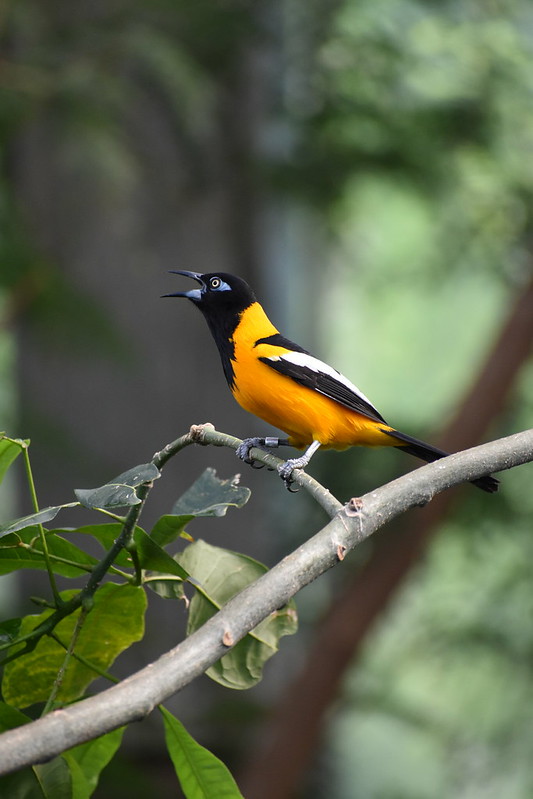
With its status listed as of Least Concern on the IUCN Red List, the Venezuelan Troupial is a popular sighting among bird enthusiasts, with Venezuela hosting over 1,300 recorded birds, making it a sought-after destination for birding tours.
